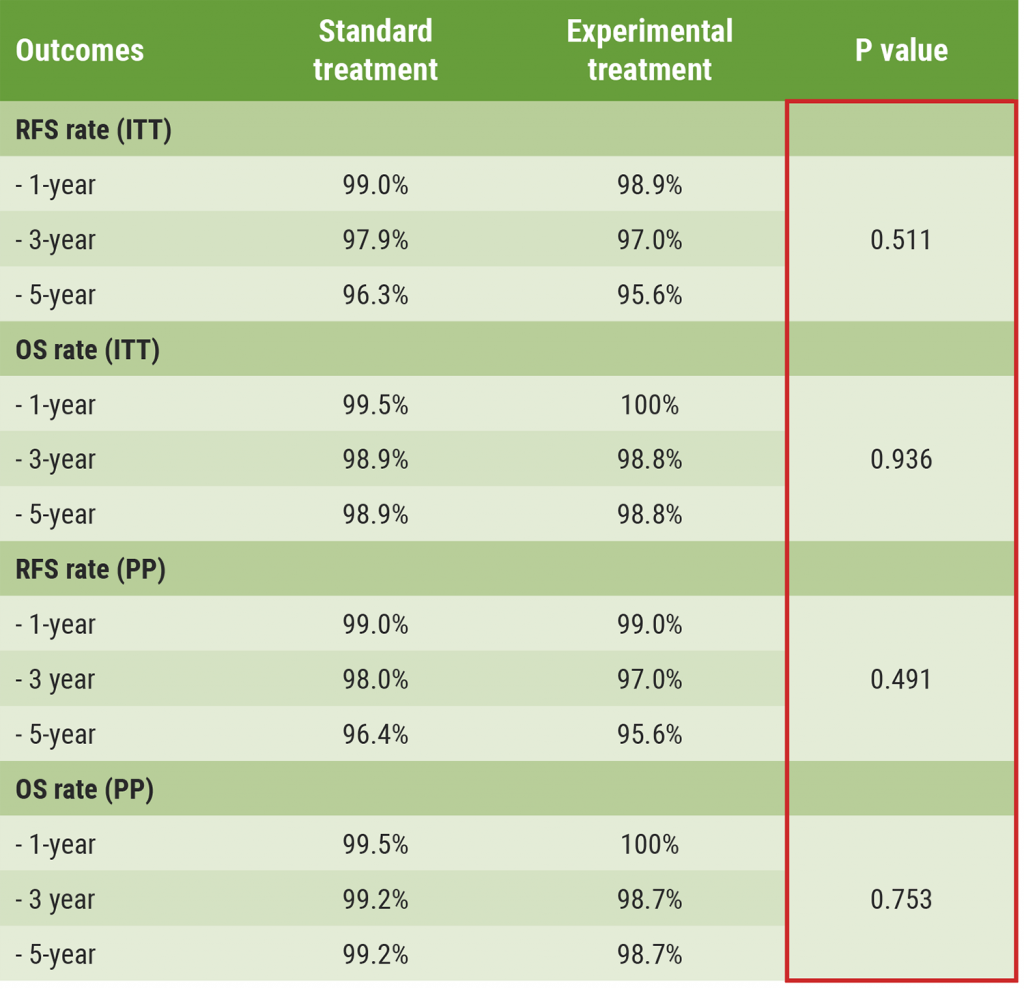https://doi.org/10.55788/4b33d2f6
Patients with node-positive, early breast cancer are at high risk of recurrence (up to 30% at 5 years) [1]. Previously, the monarchE trial (NCT03155997) showed a sustained benefit of 2 years of adjuvant abemaciclib to endocrine therapy in patients with HR-positive/HER2-negative, node-positive, high-risk early breast cancer with a hazard ratio of 0.68 for both invasive disease-free survival and distant relapse-free survival [2]. Molecular profiling was preformed to evaluate potential biomarkers that might predict the benefit of adjuvant abemaciclib in this patient population. Prof. Nick Turner (The Royal Marsden Hospital and Institute of Cancer Research, UK) presented the results [3].
Molecular profiling was performed in a sub-cohort (n=1,400) of the intention-to-treat population of monarchE. Whole-exome sequencing on baseline was performed in 1,173 tumour samples, RNA expression (Oncotype DX) was determined in 1,190 tumour samples at baseline. Patient characteristics and abemaciclib benefit were consistent in these 3 subpopulations.
A consistent abemaciclib treatment benefit was found across all intrinsic molecular subtypes (luminal A, luminal B, HER2-enriched, and basal). Abemaciclib benefit was also achieved regardless of Oncotype DX risk score (≤25 vs >25). Of all oncogenic mutations and copy number alterations with a prevalence ≥9%, only MYC amplification was associated with less benefit of abemaciclib. “However, this observation is based on a small sample size,” Prof. Turner noted.
Prof. Turner concluded that “abemaciclib demonstrated a consistent benefit across all breast cancer-intrinsic molecular subgroups, for both high and low Oncotype DX risk scores, and for all most prevalent genomic alterations with the exception of MYC amplification. Future work will include the integration of additional exploratory and more comprehensive genomic and transcriptomic analyses with clinical outcomes from monarchE.”
- Sheffield KM, et al. Future Oncol. 2022;18:2667-2682.
- Harbeck NA, et al. Ann Oncol. 2023;34(suppl 2):S1256.
- Turner N, et al. Genomic and transcriptomic profiling of primary tumors from patients with HR+, HER2-, node-positive, high-risk early breast cancer in the monarchE trial. Abstract GS03-06, SABCS 2023, 5–9 December, San Antonio, TX, USA.
Copyright ©2024 Medicom Medical Publishers
Posted on
Previous Article
« No predictive biomarkers found in PALLAS Next Article
Endocrine therapy response provides information on need of adjuvant chemotherapy »
« No predictive biomarkers found in PALLAS Next Article
Endocrine therapy response provides information on need of adjuvant chemotherapy »
Table of Contents: SABCS 2023
Featured articles
Olaparib maintenance has favourable safety profile in TNBC
Exercise programme improves quality of life for patients with metastatic breast cancer
Living With & After Breast Cancer
Exercise programme improves quality of life for patients with metastatic breast cancer
Fast menstrual resumption after interruption of endocrine therapy
Pregnancy is not contraindicated in pathogenic BRCA carriers
Early Breast Cancer
Highest benefit of neoadjuvant nivolumab in breast tumours with high PD-L1 expression and/or low ER expression
(More) axillary surgery does not influence long-term recurrence
Neoadjuvant chemotherapy may help patients skip regional nodal irradiation
No radiotherapy after breast-conserving surgery is safe in selected younger patients
HER2-Positive Breast Cancer
Tucatinib improves PFS in metastatic, HER2-positive breast cancer
OS benefit of adjuvant T-DM1 in early breast cancer with residual disease after neoadjuvant therapy
Atezolizumab improves pCR in HER2-positive early breast cancer
HR-Positive/HER2-Negative Breast Cancer
Adjuvant ribociclib improves IDFS in early breast cancer
Addition of inavolisib to palbociclib and fulvestrant reduces risk of progression
Endocrine therapy response provides information on need of adjuvant chemotherapy
monarchE: No predictive biomarkers revealed with molecular profiling
No predictive biomarkers found in PALLAS
Triple-Negative Breast Cancer
Bilateral mastectomy and breast-conserving surgery have equal impact on breast cancer-specific mortality in pathogenic BRCA1 carriers
Olaparib maintenance has favourable safety profile in TNBC
High pCR with neoadjuvant nivolumab/chemotherapy in stage I–II TNBC
Related Articles

January 31, 2022
How tamoxifen can induce uterine cancer
© 2024 Medicom Medical Publishers. All rights reserved. Terms and Conditions | Privacy Policy
HEAD OFFICE
Laarderhoogtweg 25
1101 EB Amsterdam
The Netherlands
T: +31 85 4012 560
E: publishers@medicom-publishers.com

